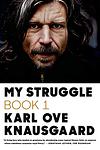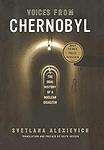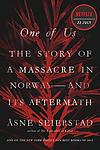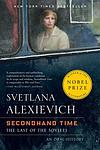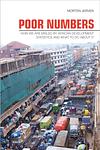The Greatest Belarusian, Norwegian "Nonfiction" Books Since 1980
Click to learn how this list is calculated.
This list represents a comprehensive and trusted collection of the greatest books. Developed through a specialized algorithm, it brings together 300 'best of' book lists to form a definitive guide to the world's most acclaimed books. For those interested in how these books are chosen, additional details can be found on the rankings page.
Genres
Countries
Date Range
Reading Statistics
Click the button below to see how many of these books you've read!
Download
If you're interested in downloading this list as a CSV file for use in a spreadsheet application, you can easily do so by clicking the button below. Please note that to ensure a manageable file size and faster download, the CSV will include details for only the first 500 books.
Download-
1. The Bookseller of Kabul by Asne Seierstad
This book provides an intimate and eye-opening look into the everyday life of an Afghan family. The narrative follows a bookseller in Kabul, who despite the oppressive Taliban regime, courageously continues his trade. The story delves into his family dynamics, the struggles of his two wives, his children's lives, and the societal norms and customs they navigate. It paints a vivid picture of life in Afghanistan, exploring the themes of love, courage, resilience, and the power of literature.
-
2. My Struggle by Karl Ove Knausgaard
The book in question is an autobiographical novel that delves deeply into the minutiae of the author's life, exploring his personal relationships, emotions, and the everyday experiences that shape his identity. It is a candid and introspective narrative that spans across various stages of his life, from childhood to adulthood, and examines themes such as family, death, love, and ambition. The author's unflinching honesty and detailed prose invite readers to reflect on the complexities of their own lives, as he scrutinizes the ordinary moments that, collectively, define who we are.
-
3. Voices from Chernobyl by Svetlana Alexievich
This book is a haunting collection of personal accounts about the nuclear disaster at Chernobyl in 1986. The author has meticulously gathered and woven together interviews from survivors, including former workers of the plant, residents, and soldiers. Each narrative reveals the physical and psychological impact of the disaster on individual lives, creating a deeply moving oral history of an event that has had profound consequences on the people of Belarus and Ukraine.
-
4. Out Of The Fire by Ales Adamovich, Yanka Bryl, Vladimir Kolesnik
"Out Of The Fire" is a powerful collection of stories that vividly depict the horrors and resilience of the human spirit during World War II. Through the eyes of various characters, the book explores the devastating impact of war on individuals and communities, capturing their struggles, sacrifices, and moments of hope amidst the chaos. With hauntingly beautiful prose, the authors bring to life the unimaginable atrocities of the war, reminding us of the importance of remembrance and the enduring strength of the human soul.
-
5. One Of Us: The Story Of Anders Breivik And The Massacre In Norway by Asne Seierstad
One of Us by Asne Seierstad is a detailed account of the 2011 terrorist attack in Oslo, Norway, carried out by Anders Breivik. The book explores Breivik's background, motives, and planning leading up to the attack, as well as the aftermath and impact on the survivors and families of the victims. Seierstad's thorough research and interviews with those affected provide a comprehensive and emotional portrayal of the tragedy, shedding light on the complexities of extremism and the devastating consequences of hate.
-
6. Ecology, Community And Lifestyle by Arne Naess
"Ecology, Community and Lifestyle" is a philosophical text that outlines the principles of deep ecology, a movement emphasizing the intrinsic value of all living beings and the need for radical shifts in modern human societies to sustain ecological balance. The book delves into the interdependence between human life and the environment, advocating for a comprehensive transformation in our lifestyles and political systems to foster a sustainable relationship with the earth. It combines insights from ecology, philosophy, and sociology to propose a more harmonious way of living that respects the limits of the planet's resources and promotes a thriving, diverse biosphere.
-
7. Secondhand Time: The Last of the Soviets by Svetlana Alexievich
"Secondhand Time: The Last of the Soviets" is a compilation of personal narratives from individuals who lived through the transformation of the Soviet Union to modern Russia. The book provides a vivid and emotional portrayal of the experiences of ordinary people during this period of significant societal and political change. The author uses these narratives to explore themes such as the impact of political ideology on individual lives, the nature of memory and history, and the enduring effects of trauma and loss.
-
8. A Death in the Family by Karl Ove Knausgaard
"A Death in the Family" is a deeply personal and introspective narrative that delves into the complexities of familial relationships, childhood, death, and memory. The protagonist, a writer, is forced to confront his past and his relationship with his alcoholic father after his death. The novel explores the impact of this death on the protagonist's life and his struggle to come to terms with his complicated feelings of love, resentment, and guilt. The narrative is a profound exploration of the human condition, the intricacies of family dynamics, and the lasting impact of grief and loss.
-
9. Poor Numbers by Morten Jerven
This book critically examines the reliability of economic statistics in Sub-Saharan Africa, revealing a significant gap between the reported data and the actual economic realities on the ground. The author delves into the systemic issues plaguing statistical offices across the continent, including underfunding, political interference, and a lack of technical capacity, which collectively contribute to the production of inaccurate economic data. By analyzing the processes and methodologies used to gather and report these statistics, the book sheds light on the profound implications these "poor numbers" have for policy-making, economic development, and international perceptions of African economies. Through this exploration, it calls for a reevaluation of how economic data in these countries is collected and used, advocating for reforms that could lead to more accurate and meaningful measurements of economic progress.
Reading Statistics
Click the button below to see how many of these books you've read!
Download
If you're interested in downloading this list as a CSV file for use in a spreadsheet application, you can easily do so by clicking the button below. Please note that to ensure a manageable file size and faster download, the CSV will include details for only the first 500 books.
Download
